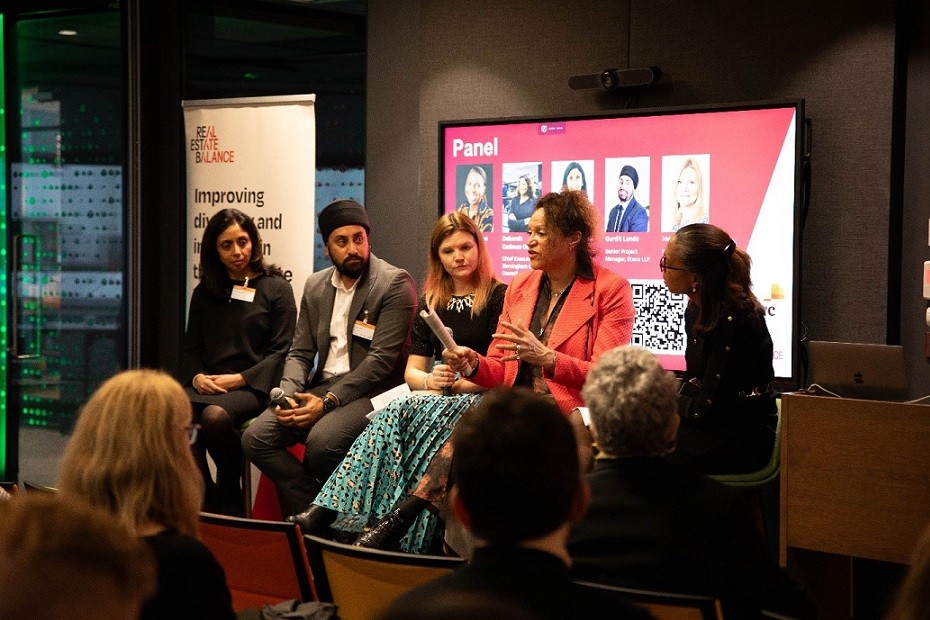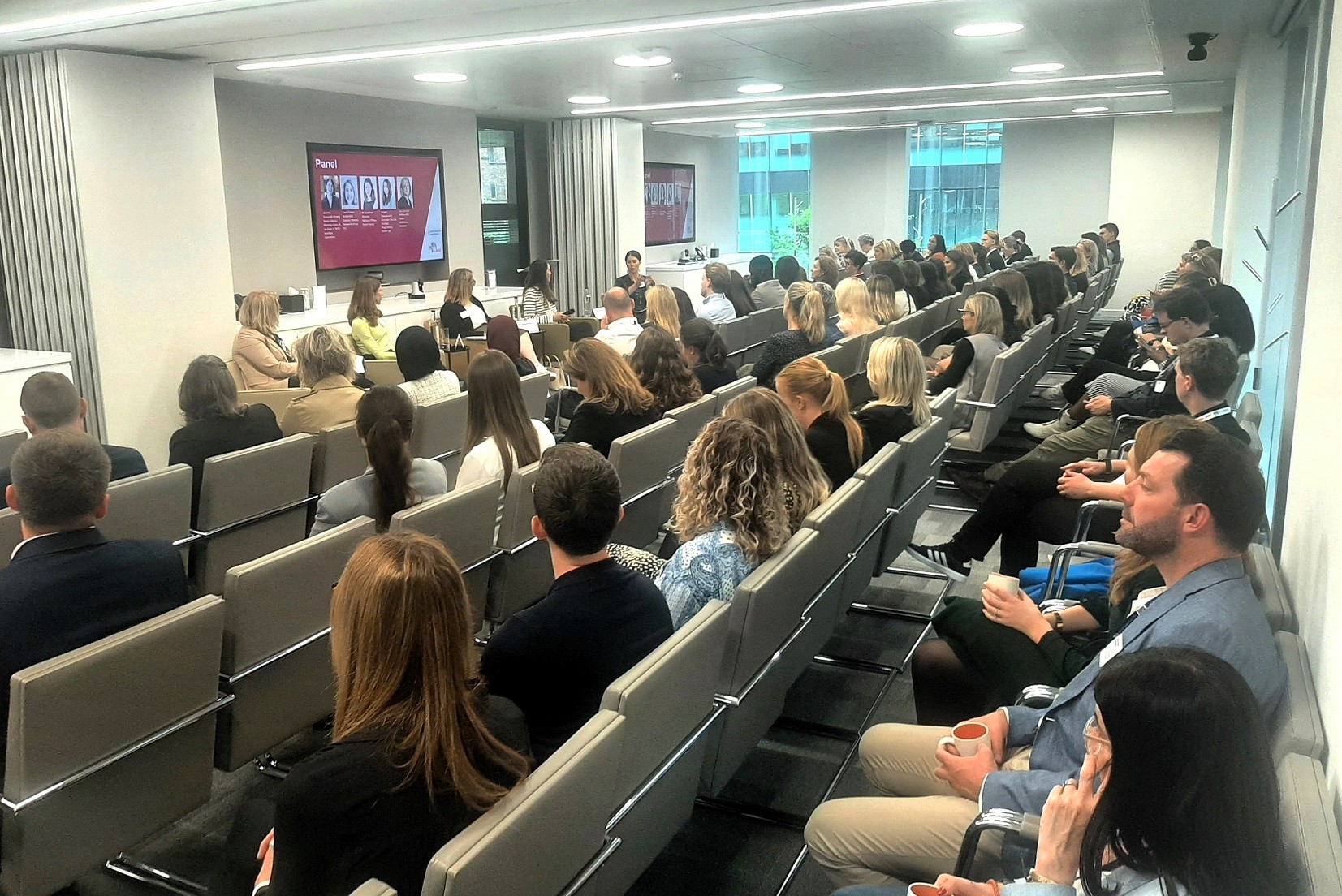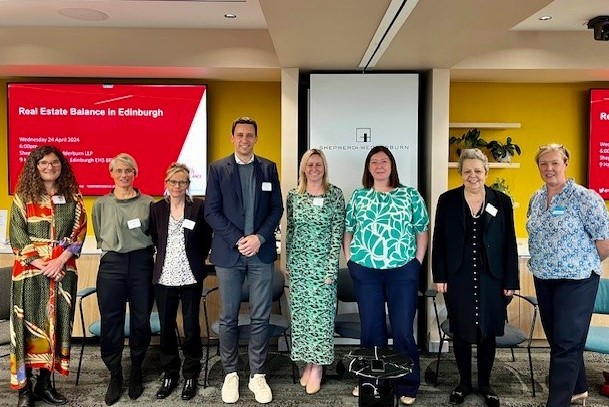By joining Real Estate Balance’s email list, you agree to receive email updates from time to time about organisation news, events being held and information about our partners in accordance with the terms outlined in our privacy notice, which you can read in full here.
Sign upDiscussing ethnic and socioeconomic representation in Bristol and the South West
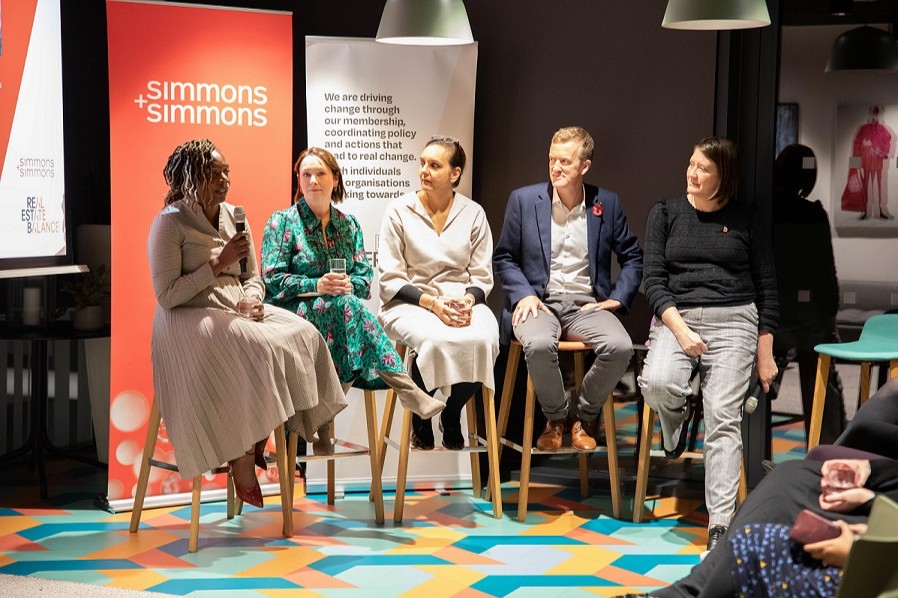
The latest Real Estate Balance event outside of London saw us heading westward to discuss ethnic and socioeconomic representation in the real estate industry in Bristol and the South West.
With Bristol predicted to be one of the UK's highest-growth cities across multiple real estate sectors over the next decade and companies in the wider region also experiencing opportunities and challenges relating to recruiting and retaining diverse talent, the location for this event was a natural choice.
We were pleased to be proved right, with a great turnout of people at Simmons & Simmons on the night interested to hear from the below panel of property professionals on how we can make the industry more representative of the communities it is a vital part of.
- Tim Clark- Legal & Professional Editor at Property Week (Chair)
- Caroline Turner-Inskip- Partner, Real Estate and Global Head of Wellbeing at Simmons & Simmons LLP
- Kate Craig Waller – Principal in Property Recruitment at Granger Reis
- Simon Peacock – Head of Regions and South & Wales Offices, UK, at JLL
- Lionah Kawonza – Programme Manager at Arcadis and South West chapter lead of Black Women in Real Estate
- Jas Chahil – Head of Strategic Change at LGIM
The conversation was also introduced by Cllr Tom Renhard, the Bristol City Council Cabinet Member for Housing Delivery and Homelessness.
The fascinating discussion has been covered extensively in Property Week here. The below is a roundup of some of their key insights for those unable to make it on the night.
One of the best things Bristol and the South West have going for it is a genuine intent to change and participate in collaborative cross-company efforts.
There is an understanding of the diverse pool of talent available and a desire to keep those people in the region, as Liverpool and Manchester, for example, do so well.
Like elsewhere, though, the real estate industry is viewed as too traditional, especially in the dimensions of ethnicity and social backgrounds.
Communities and clients are demanding change when it comes to equity, diversity and inclusion (EDI). “If we don’t embrace this agenda, we’ll lose talent, we’ll lose capital and we won’t be successful,” as one of the panellists remarked.
Employers also needed to shift their mindsets, with some businesses too often an echo chamber of people with similar upbringing and formative educational experiences, with this singularity having the potential to both limit innovation and stymy creativity.
This is despite an understanding that diverse teams – whether relating to gender, ethnicity, socioeconomic backgrounds, disabilities, neurodiversity or other dimensions of diversity – are more successful ones and especially relevant and important for the built environment to foster.
The collective leadership of our industry are too often unrepresentative of the populations of Bristol and the South West, which leads to a lack of role models for diverse talent.
“People need to be able to look through the window into our industry and see themselves and see an exciting place where their skills will be valued and where they will be welcome,” said one panellist.
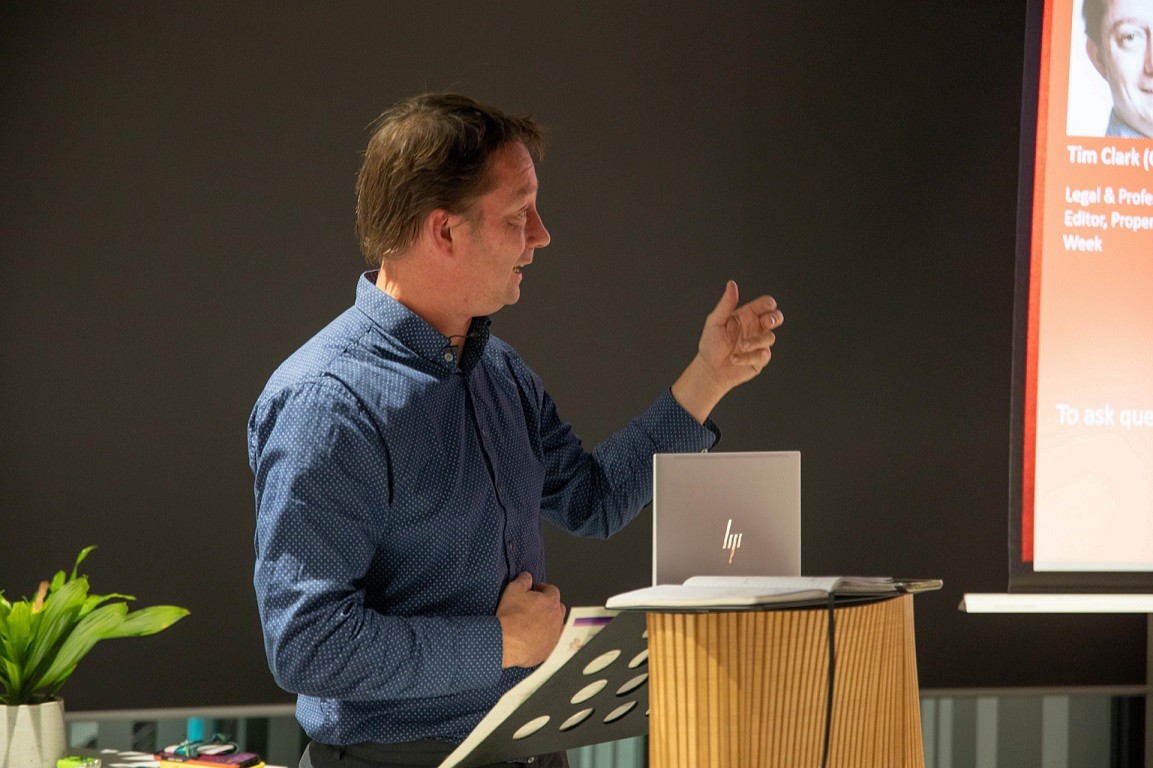
Biases can form very early in life, with many young people viewing real estate as just being about construction, estate agents and popular Netflix programmes like Selling Sunset.
Long term relationships with schools and providing resources for teachers could lead to a better understanding of the variety of roles and opportunities our industry offers.
The panellists also advocated for scholarships for students with underrepresented protected characteristics and from underprivileged backgrounds and the targeting of ‘career changers’ by placing a higher value on transferable skills.
The panellists agreed that engaging with young people at university was often too late, not least because a lot of the diversity in the student body at the University of Bristol, for example, is overseas students who often return home at the end of their courses.
One discussed their organisation’s partnership with local sports clubs as a way of finding young people who are talented but without traditional academic backgrounds and reaching people through TikTok.
The panel also discussed the importance of data in recruitment and promotion decisions, with one panellist sharing that their own research had found that ethnic minorities are more likely to prefer a video call over an in-person meeting in their first interaction with an organisation.
Another topic of the discussion was the language used in job adverts and internal opportunities for promotion, with this oftentimes highly gendered.
Inclusion was also discussed at length, as even if an organisation can access the diverse talent in Bristol and the South West, if those people face pressure to assimilate, experience micro aggressions and feel that they cannot be successful by being themselves, they will likely leave.
It is vital that organisations develop inclusive workplace cultures where authenticity is truly valued rather than put all of their efforts into “trading diversity between themselves”, as one panellist said.
The world is changing fast, with challenging market conditions and the possibility of bias as more AI tools are rolled out, so the panellists agreed that while it is difficult, it is also more important than ever for EDI issues to remain vital real estate industry issues.
Thank you to Simmons & Simmons for hosting such a well-received discussion, to everyone who attended and contributed to the conversation on the night, and to Tim, Caroline, Kate, Lionah, Jas and Simon for sharing their insights.
